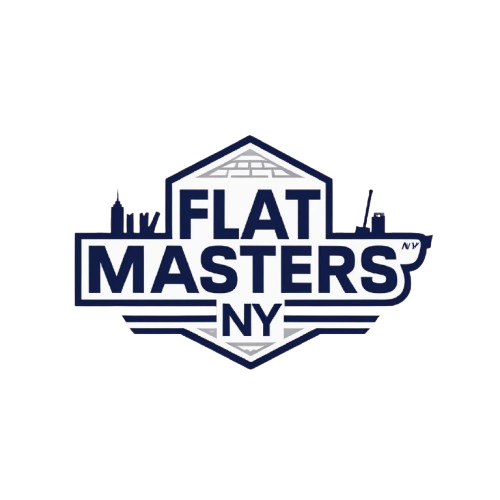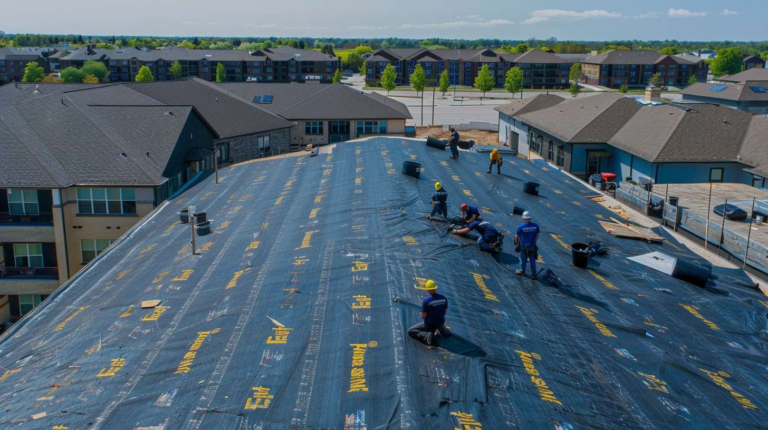Professional Flat Roof Fascia Board Installation Services
Look, after doing flat roof work in Queens for over two decades, I can tell you that fascia board installation isn't something most homeowners should tackle themselves. But understanding the process? That's crucial for any property owner dealing with flat roof maintenance.
Here's the thing about fitting fascia boards on flat roofs - it's not like your typical pitched roof job. The angles are different, the water management is more critical, and one small mistake can cost you thousands in water damage down the line.
Understanding Flat Roof Fascia Board Basics
Most people think fascia boards are just decorative trim, but on flat roofs they're absolutely essential for protecting the roof edge and supporting your gutter system. In Queens, with our heavy spring rains and winter freeze-thaw cycles, these boards take a beating.
The fascia board sits at the edge of your roof, covering the ends of the roof joists and providing a mounting surface for gutters. On flat roofs, we're dealing with different water flow patterns than pitched roofs, so the installation technique has to account for that.
How We Install Fascia Board on Flat Roofs
First step is always removing the old fascia if there is one. Last month on Astoria Boulevard, we found three layers of fascia boards that previous contractors had just installed over each other. What a mess that was.
The key measurements are critical. We measure the entire perimeter, accounting for corners and any architectural features. Most residential flat roofs in Queens use 1x8 or 1x10 boards, depending on the joist depth. Commercial properties often need 2x10 or even 2x12 boards.
Installation starts with the longest straight runs. We use galvanized screws - never nails on flat roof fascia work because the thermal expansion and contraction will loosen nails over time. Each board gets secured into the roof joists every 16 inches, minimum.
Materials That Actually Work in Queens Weather
I've tried every fascia board material you can think of. Pressure-treated lumber is the most common, but honestly, composite materials are becoming my go-to recommendation for Queens properties. The salt air from the East River and Flushing Bay is brutal on wood.
PVC fascia boards cost more upfront - usually $8-12 per linear foot versus $3-6 for wood - but they last twice as long and never need painting. Fiber cement is another solid option, especially for commercial buildings.
Cedar looks beautiful but requires maintenance every 3-4 years in our climate. Unless you're planning to stay on top of the staining and sealing, I wouldn't recommend it.
The Critical Details Most Contractors Miss
Water management is everything with flat roof fascia installation. We always install a drip edge behind the fascia board, and there's a specific way to flash it that most contractors get wrong. The membrane has to extend up behind the fascia at least 4 inches, then we install a termination bar and seal it properly.
Corner joints are where I see the most failures. You can't just butt the boards together and hope for the best. Proper mitered corners with construction adhesive and mechanical fasteners are essential. I use Gorilla Glue construction adhesive because it handles temperature swings better than most.
Here's something most people don't know - the fascia board height matters for gutter installation. Too low and your gutters won't drain properly. Too high and water can get behind the gutter system. We typically install fascia boards so the top is 1/2 inch below the roof membrane surface.
Common Installation Mistakes I See
The biggest mistake is using the wrong fasteners. I can't tell you how many times I've been called to fix fascia boards that were installed with regular deck screws or, worse yet, finish nails. On flat roofs, you need corrosion-resistant fasteners that can handle the thermal movement.
Another common problem is inadequate backing. Some contractors try to attach fascia boards to just the roof decking. That doesn't work long-term. The fascia needs to be secured to the actual structural members - the roof joists or blocking between joists.
Not accounting for expansion is a big one too. Wood and composite materials expand and contract with temperature changes. We leave 1/8 inch gaps at joints and use flexible caulking, not rigid compounds.
Timing and Weather Considerations
In Queens, I try to schedule fascia board installation for late spring or early fall. Summer heat makes working with some materials difficult, and winter cold can make adhesives and sealants less effective.
Rain is obviously a no-go for this work. But even high humidity can affect how well sealants cure. We check the weather forecast for at least 24 hours after installation to ensure proper curing time.
Wind is another factor people don't consider. Those lightweight composite boards can become sails in strong wind. We've learned to have extra hands on deck when the forecast shows gusts over 20 mph.
Why DIY Fascia Board Installation Usually Fails
Look, I appreciate homeowners who want to tackle their own projects, but fascia board installation on flat roofs involves working at height with precision measurements and specialized tools. Most DIY attempts I've had to fix cost the homeowner more than hiring a professional would have initially.
The flashing details alone require experience to get right. One small gap in the membrane seal and you're looking at water damage to your roof deck, potentially your ceiling, and everything below.
Plus, there's the safety factor. Working on roof edges requires proper fall protection equipment and training. I've been doing this for 22 years and I still use safety harnesses every single time.
Cost Factors for Professional Installation
Material costs vary widely depending on what you choose. Basic pressure-treated lumber runs $3-6 per linear foot. Premium composite materials can cost $12-18 per linear foot. Labor typically adds $8-15 per linear foot depending on the complexity of the job.
A typical Queens residential flat roof might need 80-120 linear feet of fascia board. So you're looking at material costs of $240-2,160 plus labor of $640-1,800. Complex jobs with multiple corners, architectural details, or difficult access can push costs higher.
But here's what I tell every customer - skimping on fascia board quality or installation is penny-wise and pound-foolish. Water damage from failed fascia boards can easily cost $5,000-15,000 to repair.
Maintenance After Installation
Even the best fascia board installation requires maintenance. Wood fascia needs inspection twice a year - spring and fall. Look for loose boards, gaps in caulking, or signs of water infiltration.
Composite materials are lower maintenance but still need periodic cleaning and inspection. Bird damage is common in Queens - those persistent pigeons love to nest behind fascia boards.
We recommend professional inspection every 3-5 years, depending on the materials used and exposure conditions. Properties near the water or with heavy tree coverage may need more frequent attention.
Working with Flat Masters NY
When we handle fascia board installation, every job starts with a detailed assessment of your existing roof edge conditions. We check for underlying damage, proper flashing, and structural integrity before recommending materials and methods.
Our installations come with written warranties - 5 years on workmanship, and we'll match manufacturer warranties on materials. We're licensed, bonded, and insured for your protection.
If you're dealing with fascia board issues on your Queens flat roof, give us a call at (917) 994-7618. We'll provide a detailed estimate and explain exactly what your property needs. No high-pressure sales tactics, just honest assessment from experienced professionals who've been serving Queens property owners for over two decades.
After 2,000+ roofs in this borough, we know what works and what doesn't in Queens weather conditions. Your flat roof deserves fascia boards installed right the first time.


